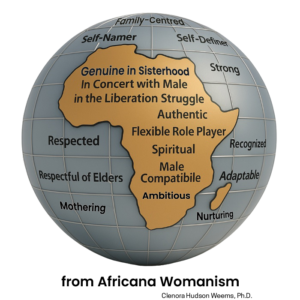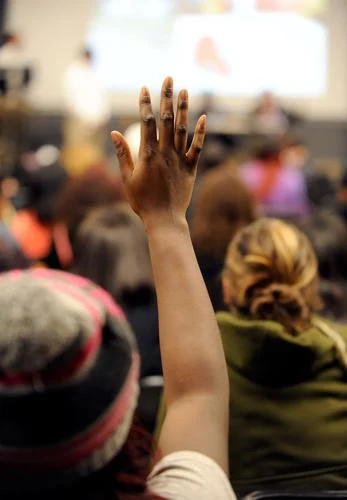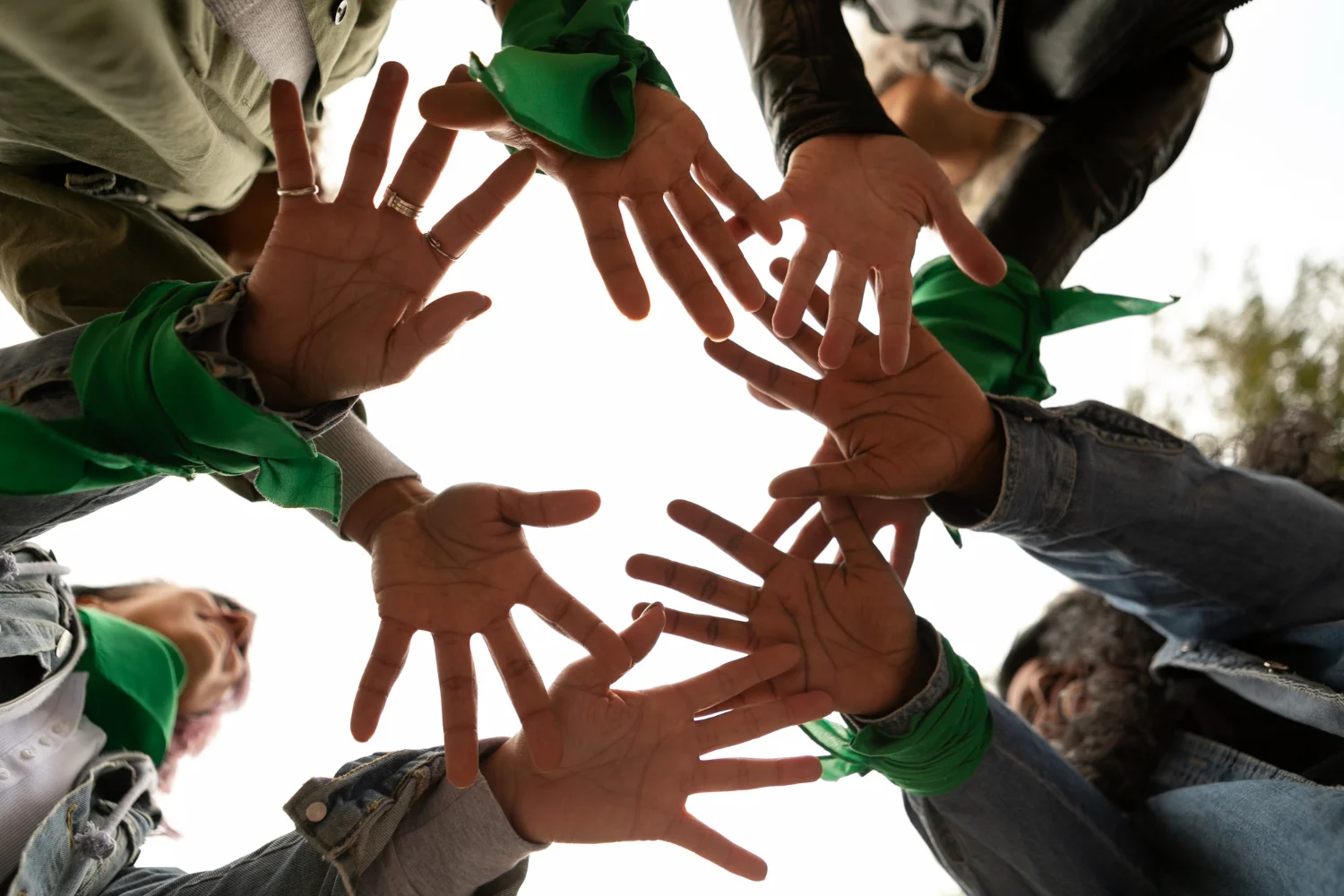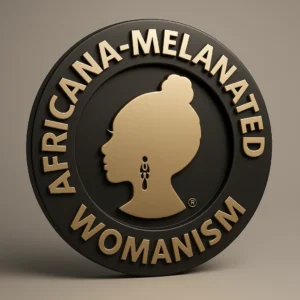Self-Naming
Africana Womanism
A Paradigm Rooted in Culture, Centered in Family, and Committed to Collective Liberation
Conceptualized, Named, and Developed by Dr. Clenora Hudson-Weems
Read MoreConceptualized, Named, and Developed by Dr. Clenora Hudson-Weems

Building Knowledge
What Is Africana Womanism?
Africana Womanism is a global, self-defined paradigm designed to speak directly to the needs, realities, and cultural identity of Africana women. Developed in the mid-1980s and formally introduced in my 1993 groundbreaking work Africana Womanism: Reclaiming Ourselves, it is not a branch of feminism, nor a reactive ideology—it is a wholly original framework rooted in our own historical truths, ancestral wisdom, and lived experiences.
This paradigm prioritizes the Africana family unit—women, men, and children—working together in harmony, without opposition between the sexes. It centers race and class as primary factors in the lived experience of Africana women, with gender understood in its proper cultural context.
Africana Womanism is about reclaiming ourselves—not redefining ourselves in someone else’s image.
Why Africana Womanism?
The urgency to distinguish Africana Womanism from feminism arose from my academic and cultural observations: the feminist movement did not reflect the lived realities of Africana women, whose priorities often centered on racial justice, family survival, and community uplift—not individualistic, Eurocentric gender battles.
Africana Womanism affirms that Africana women:
Africana Womanism affirms that Africana women:
- Have a unique cultural and political location in the world.
- Deserve to name and define themselves outside of Western paradigms.
- Must honor their traditions, not discard them in pursuit of liberation.
- Can only thrive when their families and communities thrive.
We do not reject our men or children—we walk forward together.

Building Knowledge
The 18 Core Characteristics of Africana Womanism
These principles define the ideological and practical framework of Africana Womanism. They were developed through a deep study of Africana history, culture, and struggle:
Each characteristic is drawn from a lived cultural reality, not abstract theory. They collectively offer a holistic approach to identity, leadership, healing, and liberation.

Critical Recognition in Scholarship and Culture
Africana Womanism has been acknowledged as a transformative framework across disciplines, appearing in literature, cultural studies, Black women’s history, and critical theory. In her seminal anthology, Call and Response, Dr. Patricia Liggins Hill writes:
“The first African American woman intellectual to formulate a position on Africana Womanism was Clenora Hudson (Weems), author of the 1993 groundbreaking study, Africana Womanism: Reclaiming Ourselves. Taking a strong position that Black women should not pattern their liberation after Eurocentric feminism but after the historic and triumphant women of African descent, Hudson (Weems) has launched a new critical discourse in the Black Women’s Literary Movement.”
— (Liggins Hill, Call and Response 1811)

Critical Recognition in Scholarship and Culture
Africana Womanism has been acknowledged as a transformative framework across disciplines, appearing in literature, cultural studies, Black women’s history, and critical theory. In her seminal anthology, Call and Response, Dr. Patricia Liggins Hill writes:
“The first African American woman intellectual to formulate a position on Africana Womanism was Clenora Hudson (Weems), author of the 1993 groundbreaking study, Africana Womanism: Reclaiming Ourselves. Taking a strong position that Black women should not pattern their liberation after Eurocentric feminism but after the historic and triumphant women of African descent, Hudson (Weems) has launched a new critical discourse in the Black Women’s Literary Movement.”
— (Liggins Hill, Call and Response 1811)
Global Reach & Institutional Impact
Since its inception, Africana Womanism has expanded beyond its academic origins to become a global movement. It has been incorporated into university curricula, doctoral research, scholarly conferences, and community programs across Africa, the U.S., the Caribbean, and Europe.
Keynote & Distinguished Speaking Engagements Include:
- Ida Beam Distinguished Visiting Professor, University of Iowa’s 50th Anniversary of African American Studies (2021)
- Keynote Speaker, LeMoyne-Owen College HBCU Lecture on Africana Womanism (2024)
- Keynote Speaker, Black Women’s Leadership Conference, University of South Carolina (2024)
- Morrisonian Tribute Keynote, Ida B. Wells Institute at Rust College, in honor of Toni Morrison (2019)
- Keynote Speaker, 2nd International Women’s Conference on Africana Womanism, University of Zimbabwe (2021)
- Guest Speaker, ST-JABIS 2024 – Second Triennial James Arthur Baldwin International Symposium
Africana Womanism is not only being studied—it is being lived and led by educators, activists, students, and mothers across generations.

A Poetic Manifesto
I Got Your Back, Boo
Written on my way to the National Africana Womanism Conference in 2009, this poem embodies the emotional and cultural core of the movement.
Africana Womanism: I Got Your Back, Boo
By Dr. Clenora Hudson-Weems
Don’t you know by now, girl, we’re all In It Together!
Family-Centrality—that’s it; we’re going nowhere without the other.
That means the men, the women, and children, too,
Truly collectively working—“I got your back, Boo.”
Family-Centrality—that’s it; we’re going nowhere without the other.
That means the men, the women, and children, too,
Truly collectively working—“I got your back, Boo.”
‘Cause no one’s free ‘til we all get free,
This truth ain’t new—it’s ancestral, see?
We’re built on love, not just the fight,
Healing our homes, and reclaiming our right.
This truth ain’t new—it’s ancestral, see?
We’re built on love, not just the fight,
Healing our homes, and reclaiming our right.
We’re not clones, nor shadows in someone’s dream,
We stand tall in our own esteem.
With dignity, truth, and loyalty in view—
Africana Womanism—Yeah, we got work to do.
We stand tall in our own esteem.
With dignity, truth, and loyalty in view—
Africana Womanism—Yeah, we got work to do.
(from Africana Womanism: Reclaiming Ourselves, 5th/6th Editions, Routledge 2020/'23)


A Living, Breathing Legacy
Africana Womanism is more than a theory—it is a practice, a cultural ethic, and a spiritual charge. It invites us to reclaim our narratives, restore our families, and reimagine our futures from a place of power and pride.
Whether you are a scholar, educator, organizer, parent, or student, Africana Womanism offers an original and empowering lens through which to live and lead.
We are not following a path—we are walking in our own truth.
And yes—we got your back, Boo.
Book Appointment